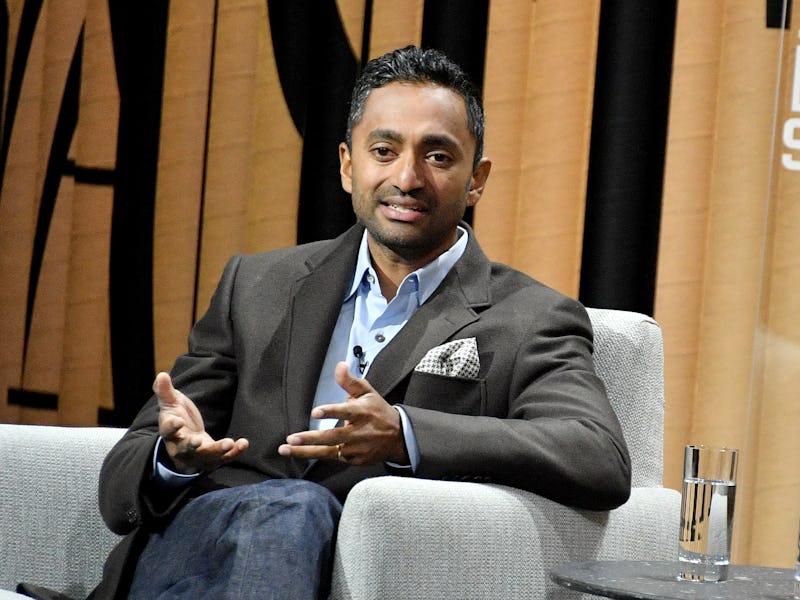We Have the Power to Stop Facebook Screwing Up Our Brains, Says Former Exec
The next in line to feel guilty over Facebook.

Sean Parker isn’t the only Facebook veteran who is ready to sound the alarm about the social media titan.
In a talk last month at Stanford University’s Graduate School of Business, former Facebook vice president for user growth Chamath Palihapitiya called on his audience of future business leaders to do all they could to stop Facebook ruining people’s minds and society at large.
“It literally is a point now where I think we have created tools that are ripping apart the social fabric of how society works,” said Palihapitiya, who’s the founder of venture capital firm Social Capital, which now invests in, among other things, 3D-printed rocket engines.
“I would encourage all of you as the future leaders of the world to really internalize how important this is,” Palihapitiya said. “If you feed the beast, that beast will destroy you. If you push back on it, you have a chance to control it and rein it in. And it is a point in time where people need to hard break from some of these tools and the things that you rely on.”
In explaining why Facebook is so addictive, Palihapitiya pointed to the same neurotransmitter Parker did in his own jeremiad against his former employer.
“The short-term driven Dopamine feedback loops that we have created are destroying how society works,” said Palihapitiya. “No civil discourse, no cooperation, misinformation, mistruth, and it’s not an American problem. This is not about Russian ads. This is a global problem. So we are in a really bad state of affairs right now, in my opinion. It is eroding the core foundations of how people behave by and between each other.”
During the talk, Palihapitiya also criticized how frivolous tech startups continue to be funded while climate change is ignored.
The comments come on the heels of Parker also recently voicing his concerns over the site that made him a billionaire overnight.
“I don’t know if I really understood the consequences,” Parker said. “It literally changes your relationship with society, with each other … It probably interferes with productivity in weird ways. God only knows what it’s doing to our children’s brains.”
Similarly, Parker spoke about how Facebook’s goal was always to monopolize users’ attention. What Parker and Palihapitiya mean is that when every like or comment on a post hits a user like dopamine, the strategy eventually backfires.
“The thought process that went into building these applications, Facebook being the first of them… was all about: ‘How do we consume as much of your time and conscious attention as possible?’” he said. “It’s a social-validation feedback loop… exactly the kind of thing that a hacker like myself would come up with, because you’re exploiting a vulnerability in human psychology.”
It seems those who created the very platform users have become addicted to are now feeling guilty over partaking in it.